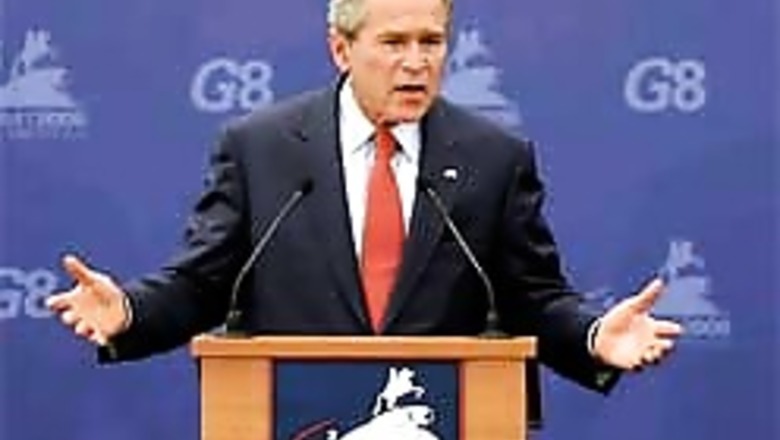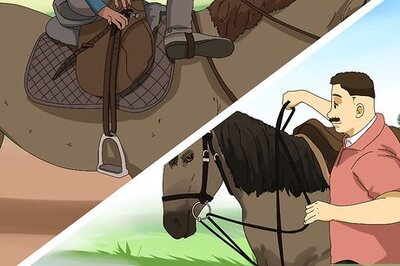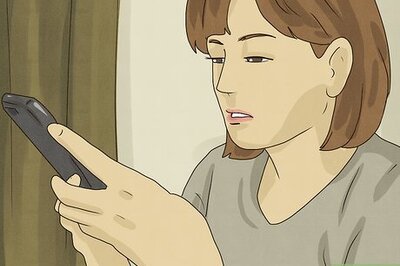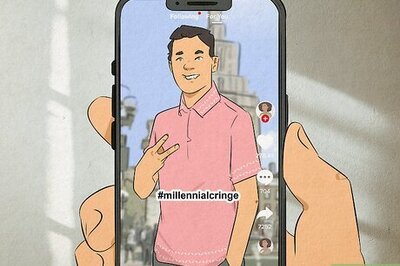
views
St Petersburg: US President George W Bush on Saturday blamed Hezbollah alone for the escalating violence in the Middle East, putting himself at odds with Russian President Vladimir Putin, who was more critical of Israel.
At a joint news conference, Bush and Putin displayed the divide that could dominate this weekend's meeting of world industrial leaders.
''In my judgment, the best way to stop the violence is to understand why the violence occurred in the first place,'' Bush said. ''And that's because Hezbollah has been launching rocket attacks out of Lebanon into Israel and because Hezbollah captured two Israeli soldiers.''
Putin said it was unacceptable to try to reach political goals through abductions and strikes against an independent state. ''In this context, we consider Israel's concerns to be justified,'' he said.
At the same time, he said, ''the use of force should be balanced.''
Israel's warplanes began striking Lebanon after Hezbollah guerrillas captured two Israeli soldiers and killed eight others on Wednesday in a cross-border raid into Israel. Since Wednesday, Hezbollah has fired hundreds of rockets at northern Israel.
''The best way to stop the violence is for Hezbollah to lay down its arms and to stop attacking,'' Bush said. ''And therefore, I call on Syria to exert influence over Hezbollah.''
The fighting came at a time of tensions between Iran and Syria and the West. Foreign policy experts suggest that Iran and Syria believe the violence will strengthen their positions in their conflicts with the West and show they hold the key to a settlement of the Arab-Israeli issue.
The violence is a late but unavoidable addition to the agenda at the weekend summit of the Group of Eight industrialised nations that was beginning with a dinner hosted by Putin Saturday night.
The G-8 countries - the United States, Russia, Japan, Germany, Britain, France, Italy and Canada - were expected to issue a joint declaration on the Lebanon crisis.
Bush said he and Putin, who held two hours of bilateral negotiations before the meeting's start, were not able to agree on Russia's admission to the World Trade Organization.
PAGE_BREAK
The talks broke off because of differences over assurances the United States was seeking over the protection of US copyrights and patents and promises that Russia would accept greater amounts of US farm goods.
Bush said his administration believed Russia needed to offer more in trade concessions to satisfy US Congress.
He said both sides would continue to negotiate to get a deal. The United States is the only country that has yet to signoff on Russia's membership in the Geneva-based WTO.
But the leaders were able to agree on an initiative to combat nuclear terrorism. The new agreement builds on an existing ''Proliferation Security Initiative,'' a US-led group of dozens of nations working together to help seize illicit weapons as they are transported around the world.
The new program, known as the Global Initiative to Combat Nuclear Terrorism, calls on states to improve accounting, control and physical protection of nuclear material and radioactive substances as well as the security of nuclear facilities.
The agreement pledges joint efforts to detect and suppress illicit trafficking in nuclear, biological and chemical materials - particularly measures to prevent their acquisition and use by terrorists. Participating nations also will be bound to respond together to mitigate the consequences of acts of nuclear terrorism.
Bush and Putin, who casually called each other by their first names, sought to downplay US-Russia tensions over the Russia leader's authoritarian drift.
''I talked about my desire to promote institutional change in parts of the world like Iraq where there's a free press and free religion,'' Bush said. ''I told him that a lot of people in our country, you know, would hope that Russia would do the same thing. I fully understand, however, that there will be a Russian-style of democracy.''
Putin, who opposed the US-led war in Iraq, replied: ''We certainly would not want to have the same type of democracy that they have in Iraq.''
''It is true that we assume that nobody knows better than us how we can strengthen our own nation,'' Putin said. ''But we know for sure that we cannot strengthen our nation without developing democratic institutions. And this is the path that we'll certainly take, but certainly we will do this by ourselves.''



















Comments
0 comment